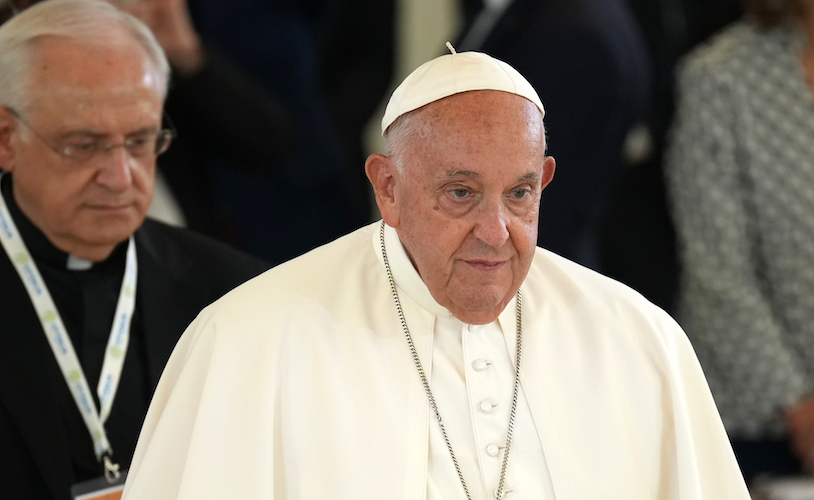
VATICAN CITY (LifeSiteNews) — Pope Francis has issued fresh criticism of devotees of the traditional Mass, accusing them of practicing “backwardism” and of “sectarian worldliness.”
“From a sociological point of view, it is interesting to consider the phenomenon of traditionalism, this ‘backwardism’ that regularly returns each century, this reference to a supposed perfect age that each time is another age,” Pope Francis commented.
The lines come as part of his recent wide-ranging memoir Hope released Tuesday in which the Pope renewed his oft-repeated criticisms of young Catholics devoted to the Latin Mass, styling them as “rigid.”
“It has now been ruled that the possibility of celebrating Mass in Latin, following the missal prior to the Second Vatican Council, must be expressly authorized by the Dicastery for Divine Worship, who will allow it only in special cases,” said Francis, alluding to his 2021 document Traditionis Custodes.
Commenting further on the rapidly growing phenomena of young Catholics flocking to the traditional Mass – such as at the Chartres pilgrimage – Francis added:
It is curious to see this fascination for what is not understood, for what appears somewhat hidden, and seems also at times to interest the younger generations.
The 88-year-old accused Latin Mass devotees of being concerned purely with external appearances rather than the content of the liturgy or practice of devotion:
This rigidity is often accompanied by elegant and costly tailoring, lace, fancy trimmings, rochets. Not a taste for tradition but clerical ostentation, which then is none other than an ecclesiastic version of individualism. Not a return to the sacred but to quite the opposite, to sectarian worldliness.
Seemingly not content with such a sweeping condemnation of many younger members of the Church, Francis expanded on the theme, suggesting that devotion to the Latin Mass revealed the possibility of a “mental imbalance”:
These ways of dressing up sometimes conceal mental imbalance, emotional deviation, behavioral difficulties, a personal problem that may be exploited.
He referenced four occasions in Italy and Paraguay on which “the papacy has had to intervene on this problem,” namely a diocese accepting seminarians who had already been “sent away from other seminaries.”
“When this happens there is generally something wrong, something that leads people to hide their own personality in closed or sectarian environments.”
Commenting on the Pope’s remarks, author and liturgist Dr. Peter Kwasniewski responded saying that “Pope Francis is hopelessly out of touch with the growing desire for reverence, sacredness, and beauty.”
“It’s not about window-dressing,” Kwasniewski said. “It’s about a meaningful spiritual encounter with the Lord of glory in a world gone mad with utilitarianism and materialism. The rationalism of the 1970s is on full display when he admits he can’t understand why anyone would want a form of worship that can’t be fully or immediately understood.”
“One wonders whether he believes God is incomprehensible; one wonders if there is any room for mystery in Bergoglio’s worldview,” he closed.
Similarly unimpressed with the Pontiff’s remarks, Dr. Joseph Shaw commented that “Pope Francis relies on rather antiquated stereotypes to understand the traditionalist phenomenon: I believe that his notion of ‘rigidity’ derives from the idea of an ‘authoritarian personality’ popular in the 1970s but developed in the 1940s.”
“Underlying this is a reluctance to accept that history has moved on: today, interest in tradition is not a clinging to what is familiar and safe, but the ultimate rebellion against the establishment,” said Shaw, who serves as Chairman of the Latin Mass Society of England and Wales and President of Una Voce International.
“By the same token,” he added, “the people spending the largest sums on vestments today are not traditionalists, but those who have access to the institutional Church’s resources, as recently seen in the reopening of Notre Dame in Paris.”
THIS IS AN EXCERPT TAKEN FROM HTTPS://WWW.LIFESITENEWS.COM/